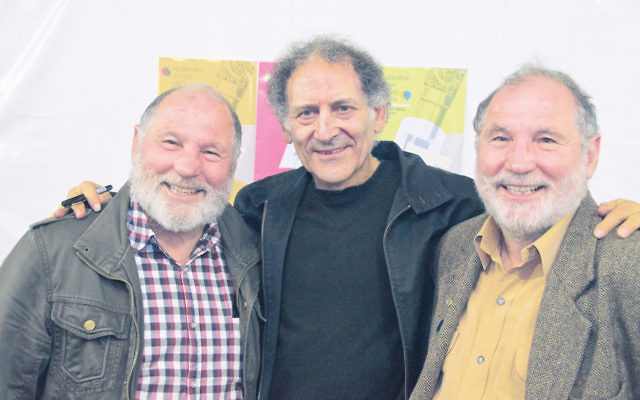A fighter’s extraordinary story
Acclaimed writer Arnold Zable has based his latest book, The Fighter: A True Story, on the extraordinary life of Australian Jewish boxing legend Henry Nissen.

FOR writer Arnold Zable, immersing himself into the world of his literary subjects is usually the easy part of his work. Indeed, the award-winning author, educator and human rights advocate relishes nothing more than setting the scene for his reader in a richly evocative manner.
Yet when it came to writing his latest book, The Fighter: A True Story – which he describes as “creative non-fiction but written like a novel” based on the life of legendary former champion boxer Henry Nissen – Zable concedes he came precariously close to abandoning the work several times.
“I didn’t want it to be an ordinary account – a biopic, which is the equivalent in the film world. I wanted it to be something that had depth, and there were times when I thought ‘I’m not quite reaching that,’” he reveals candidly.
“But what saved it was that whenever I showed what I was writing to the Nissen siblings, they came back and basically said, ‘That’s the way it was,’ and they also gave me the licence to enter the darker spaces. So I thought ‘Okay, I’ll keep pursuing it.’”
Zable reveals that Henry Nissen himself embraced the work, which Zable has dedicated “To the mothers of the neighbourhood”.
“Henry is an extraordinarily generous person, and he was very generous in the way he allowed me to take the story in the direction I felt it had to go,” says Zable.
“I took it to the limit that the story allowed, and the rest is up to the reader to respond to.”
Nissen’s story is certainly a fascinating one. Born in 1948 in a refugee centre outside the Bergen-Belsen concentration camp, Nissen came to Melbourne when he was just one year old with his family, including his twin brother, former Australian amateur flyweight champion boxer Leon.
Growing up in Melbourne’s Carlton, Nissen went on to represent Australia in his sport and, many decades later, was inducted into the Australian National Boxing Hall of Fame.
However, Nissen now works on the Melbourne docks, loading and unloading containers, as well as on the streets where he has long been providing invaluable support as a much-loved youth social worker.
And as Zable recounts in haunting detail, Nissen – who began to box after being beaten up at school – is forever reminded of his mother Sonia and her tragic descent into mental illness.
“Everything I write about Sonia is based on many, many conversations I had with the four Nissen siblings who are still alive,” says Zable.
“But then I entered into her point of view. I put myself into her shoes, and that really belongs to the art of fiction.
“And I’d always been fascinated by the story of the Nissen twins – it’s one of those iconic Melbourne tales, and not only in the Jewish community.
“I also come from a family where my mother was quite disturbed and traumatised by the loss of family during the war. It’s just very strange – it’s almost like the sirens are luring me again onto those rocks.”
The Fighter is Zable’s 10th book, an achievement that he has every reason to be proud of. His previous books, which predominantly focus on a sense of exile and displacement, include Café Scheherazade, The Fig Tree and, of course, Jewels and Ashes, depicting his journey to Poland to track his family origins – a book that won him five Australian literary awards.
“All of a sudden, you’ve got a body of work, and that’s a good thing,” Zable reflects. “Whenever you set out to write a book and tell a story, there are two questions that you ask – what is the story and what’s the best way to tell it?
“Certainly, with The Fighter, it could have gone either way. It could have been a novel or it could have been creative non-fiction. I think the border is actually very thin.
“What I’m seeking, whether I’m writing fiction or non-fiction, is what they call the emotional truth.”
Zable recently took time out from his writing commitments to travel to Venice for the 500th anniversary of the northern Italian city’s Jewish Ghetto. It was an experience that is sure to stay with him.
“Venice has, for a number of reasons, been a place that I’ve gone to over the years,” he says. “One of the reasons is because my wife’s family is from the island of Ithaca, but originally traced their ancestry back to Venice.
“It’s also such a beautiful place, and one I’ve been so interested in and have written about. Venice is a place for contemplation because of the geography of the place – it revolves around walking and spending time in the squares.
“I was very fortunate to be in Venice on March 29 this year, which was the exact anniversary of the day that the edicts were issued 500 years ago to set up a ghetto. That was marked by a remarkable evening at the Venetian theatre. It was an extraordinary experience.”
The Fighter: A True Story is published by Text Publishing, $27.99 (rrp).
Report by Jackie Brygel

comments